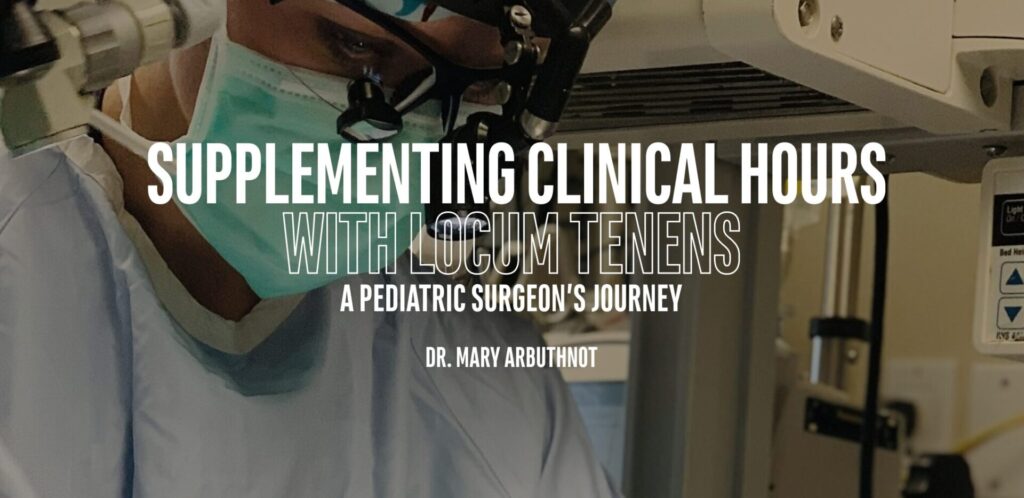Demand for locum psychiatry jobs has increased in the past few years, as the shortage of psychiatrists in the U.S. grows. If you’ve ever thought about taking the leap to become a locum psychiatrist, there’s never been a better time.
To find out more about locum tenens psychiatry experience, we sat down with a locum psychiatrist to talk about why he chose locums, what working on an inpatient unit looks like, and how identifying what you don’t want to do can help give you direction.
Read on to find out more about the locum psychiatrist experience:
What led you to psychiatry?
It was my best subject in medical school. But I had to choose between psychiatry and medicine, and I chose medicine. During my medical residency, I did over the amount of allowed psychiatry rotations, and I had the opportunity to switch residencies. I didn’t then, but as I went into my career, I realized that I really did want to switch. When my career allowed, I had a plan already––I had a three ring binder full of what to do. I was accepted as a second year psychiatry resident.
I’m late-career, as a lot of psychiatrists are. I’ve been doing psychiatry for about 17 years, and it is the most satisfying part of my career.
What made you decide to try locum tenens psychiatry?
You know, all of us physicians get bombarded with calls and texts [from locums agencies], and at first I just ignored them. But after nearly a decade at a community mental health agency, as the lone doctor––starting out in the emergency room in the community hospital, then going upstairs doing medical consults, then going over to the jail, then dealing with two crisis units and a main veterans home––I realized that I really missed the inpatient work.
That was about when the call came from my Hayes Locums consultant, Sidney Johnson, whom I adore. There was just something about his approach that was different. Most of the agencies have the kind of approach, like you have an empty seat at the bar next to you and they come up and say, is this seat taken? Sidney was very different in his approach. The conversation lasted more than the usual 25 seconds, and he took the time to get to know me. So when he offered me a position of interest, we went ahead.
What felt different about Hayes Locums’ approach?
In psychiatry, I open every interview with an introduction and asking how can I help? Sidney’s approach was similar. There’s also a form of interviewing we do in psychiatry called motivational interviewing. And [Sidney’s approach] is in that zone, where you ask: what are you thinking? Are you thinking of making a change? What kind of change would you make? What are you looking for?
That was different from [what I was hearing from other agencies], where the opening remark would literally be: I have a high paying opportunity, can I put you there? Sidney took the time to understand me and whether I was somebody that fit the ethic and the style of Hayes Locums. He was interviewing me as a potential longer term locums––and here we are, 18 months into it.
Can you talk about what it’s been like practicing as a locum psychiatrist? Do you find you get less continuity of care than you used to?
I’m doing inpatient psychiatry, so I don’t have a lack of continuity. I do a complete episode of care. Someone is psychotic or depressed or dysregulated in a way that requires special inpatient care, and once they discharge, that has been addressed, and then I hand them off to their outpatient.
What does an average day look like for you as a locum psychiatrist?
There are a few things that are more ritualized than inpatient psychiatry. What you deal with on a particular day depends on things like whether there is a separate unit for depression and personality disorders, and a separate unit for psychotic disorders, whether there a geriatric unit, or whether they’re all mixed together. [But the process is largely the same regardless]. In the morning, you log in and see if you have admissions, then you look to see if there’s any overnight reports that have to be attended to, you see whatever patients you need to see, you have team meeting, then you move to family meetings, placement meetings, and making rounds on the patients. And then in the afternoon, you deal with the new admissions. Then you sign out at the end of the day, and come back the next day.
I also do teleconsultation with six state-run veterans homes. My job there is to deal with dysregulated behavior and to reduce and hopefully eliminate the use of antipsychotics. [It’s done] through a new method called collaborative care, where a psychiatrist acts as a consultant to a team who actually does the direct patient care. The team makes a standardized presentation to the psychiatrist, and then the psychiatrist writes a formal note making recommendations, which the team then takes back and implements.
This is an area that was new to Hayes Locums. But they were willing to listen, and Sidney was able to work with these homes to create an ongoing contract for me to provide four hours a week of this kind of consultation. And we’ve now dramatically reduced the use of antipsychotics in geriatric patients. It’s rewarding work. [For these patients], their horizon is close, their future is short. And we want them to be able to enjoy as much as they can for as long as they can without being over-sedated, and without being at risk of harm to self or others.
I love this work. If somebody asked me what my job is, it’s two things. One is to reduce shame, and the other is to instill hope. And I’m able to do that.
You’ve been a psychiatrist for a long time. And there’s been a major push in the U.S. to reduce the stigma around mental health care. Do you feel that people are more open to help and care and that the stigma really is being reduced?
My wife and I spend a lot of time in England, and I would say that England and the UK are far ahead of the States in reducing stigma. But it has gotten better, or at least less bad than it was.
As an example, I end each hospitalization with a conversation about how to answer questions about where they were, and what happened, and we go over ways to defer and avoid the stigma. So it’s still a real problem. In my practice, I work to prepare people to preserve their dignity and their privacy and recognize that they had an illness, and they got better.
What would happen at your current facility, if you were not there, and no one else could fill it? What would that mean for patients?
I like that you started with the impact on patients. [Not having a locums] means they’re short staffed, and they can be short staffed not only of physicians but of nursing staff and mental health technicians. And that can mean changes in the level of frequency and intensity of care that can be given. If you’re short staffed in any of those key categories, it’s going to impact patient care.
In a specialty where you’re dealing with people who have very limited ability to handle unpleasant emotions, who are not able process events in the way that we process events, who are suffering from internal sources that we cannot can’t even begin to imagine: they act differently. They treat caregivers differently. It’s very difficult work, and it takes a toll. But it’s worth it.
I do think that psychiatry is becoming more valued. In many ways, medical, surgical and medical teams view psychiatry as the specialty that moves people that are difficult to deal with away, so they can get on with the “real medicine.” I think that’s changing. There is an emerging partnership and respect from the other specialties. But we still make a fraction of what the specialists do. Psychiatry is really hard work. It’s very stressful work. And in locums, compensation is more normalized compared to the other specialties.
Would you recommend locum tenens to other psychiatrists?
It depends. There’s a social responsibility of leaving to go help out somewhere else. I left a big hole when I left my previous practice, and that way that does weigh heavily. But I was also done doing what I was doing, and I’m contributing here in ways that are necessary. I’m sorry about the absence I left, but there was an absence here as well [that I’m filling].
What advice would you give to other psychiatrists considering locums?
I think it’s really important to know what you don’t want to do. There are so many attractive opportunities, so you have to do the exercise of saying, I don’t want to do outpatient care, I don’t want to do adolescent care, I don’t want to do prison work. There is nothing wrong with any of those options, but I don’t want to do them.
Those questions were embedded in Sidney’s initial interview: why are you thinking about changing, what should I not consider when looking for positions? Asking those questions takes people in the right direction much more quickly.
The second point is to build a relationship with a consultant and select your locums agency carefully. With Hayes, I’ve been matched with a placement, as opposed to filling a vacancy. I know that my consultant knows what I want and what I don’t want, and will look for it.
*This interview has been edited for clarity and length.



